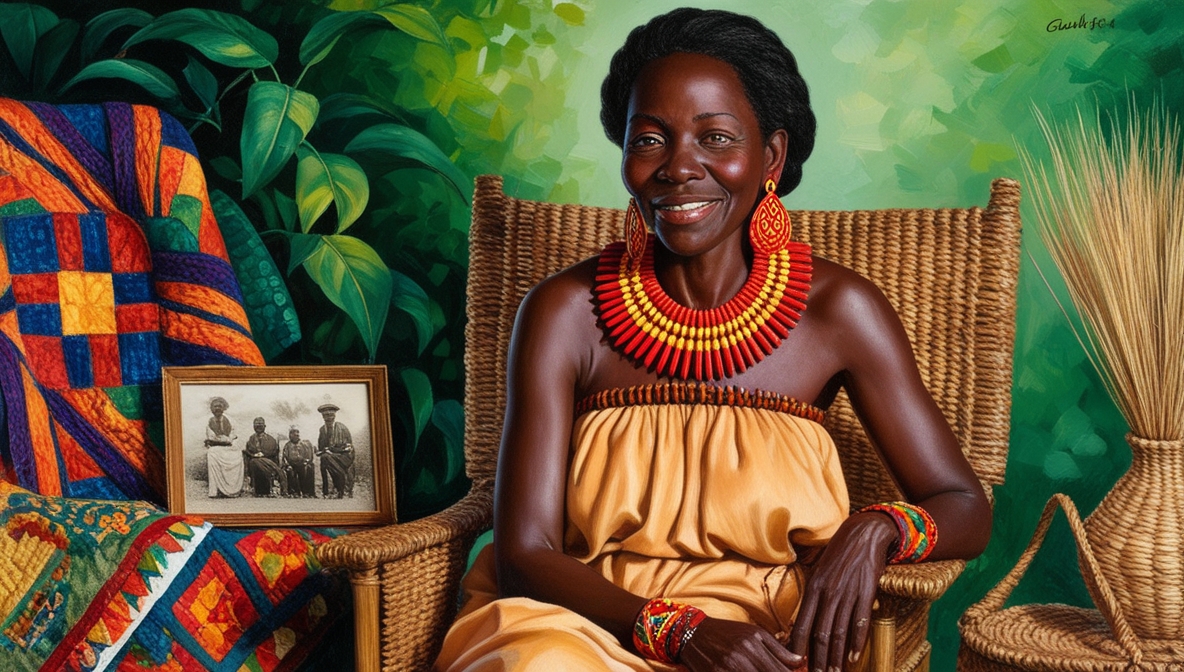
The Gullah culture is a vital part of the Lowcountry’s history, shaped by the descendants of enslaved Africans who preserved many African traditions in language, customs, and cuisine. Let’s explore the unique language, traditions, and heritage of the Gullah people.
The Origins of Gullah Culture
Enslaved Africans in the Lowcountry
The Gullah people are descendants of Africans enslaved in the coastal regions of South Carolina, Georgia, and Florida. Their knowledge of rice cultivation made them invaluable to the Lowcountry economy.
Isolated Communities and Cultural Preservation
Due to the geographic isolation of the Sea Islands, the Gullah people preserved African traditions and blended them with European and Caribbean influences, forming a unique culture. The preservation of Gullah traditions can also be seen in historic architecture, where African and European influences blend to create unique structures on the Sea Islands.
Gullah Language: A Blend of African and English
The Creole Roots of Gullah
The Gullah language, a creole blend of English and African languages like Yoruba and Wolof, reflects the diverse heritage of its speakers. It developed as a means of communication between enslaved people and English speakers.
The Importance of Oral Tradition
Oral traditions are central to Gullah culture. Storytelling, music, and spirituals play a key role in passing down historical experiences, morals, and survival strategies through generations.
Traditions and Customs of the Gullah People
Basket Weaving: A Traditional Craft
Gullah sweetgrass basket weaving is an ancient craft passed down through generations. These baskets, once used for rice winnowing, are now prized as cultural symbols and works of art.
Gullah Cuisine: A Fusion of Flavors
Gullah cuisine is a fusion of African, Caribbean, and Southern ingredients, featuring dishes like gumbo, shrimp and grits, and red rice. These flavorful meals reflect the resourcefulness and culinary expertise of the Gullah people.
Spiritual Practices and Praise Houses
Religion plays a vital role in Gullah life, blending Christian beliefs with African traditions. Praise houses serve as community-centered worship spaces where music and call-and-response are key elements of service.
The Gullah Renaissance: Preserving a Cultural Legacy
Efforts to Protect Gullah Heritage
Efforts are underway to preserve Gullah traditions and land, with organizations like the Gullah/Geechee Cultural Heritage Corridor Commission working to protect cultural sites and historical legacies.
Gullah Festivals and Celebrations
Annual festivals such as the Gullah Festival in Beaufort, South Carolina, celebrate Gullah culture through traditional food, music, storytelling, and crafts, ensuring the continuation of Gullah heritage.
The Gullah’s Impact on American Culture
Influence on Music and Arts
Gullah spirituals have deeply influenced American music, contributing to genres like gospel, blues, and jazz. Gullah storytelling has also shaped literature, film, and art.
Contributions to the Civil Rights Movement
Gullah leaders like Septima Clark and Esau Jenkins played significant roles in the Civil Rights Movement, using their community influence to promote education, voter registration, and equal rights. The Civil War’s impact on the Lowcountry played a significant role in shaping the trajectory of Gullah communities, influencing their efforts towards freedom and later, their involvement in the Civil Rights Movement.
Conclusion: The Enduring Legacy of Gullah Culture
The Gullah people have left an indelible mark on the cultural fabric of the Lowcountry and beyond. Through their language, traditions, and influence on the arts, their legacy continues to shape American culture. Efforts to preserve and celebrate Gullah heritage ensure that this rich culture endures for future generations.